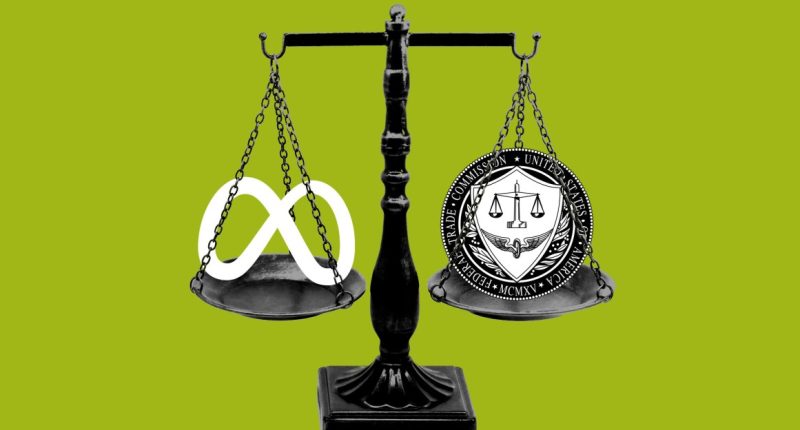Share this @internewscast.com
Meta has submitted a motion for a court ruling on the ongoing antitrust lawsuit it is facing. In this motion, Meta claims that the Federal Trade Commission (FTC) has not provided any proof that Meta illegally dominated the social networking sector—a claim the government supports due to Meta’s purchases of Instagram and WhatsApp.
This submission was made shortly after the FTC concluded its argument in a lengthy trial overseen by DC District Court Judge James Boasberg. Meta’s spokesperson, Christopher Sgro, stated, “Following five weeks of trial, it’s evident the FTC has not met the necessary legal criteria required by antitrust law. Regardless, we will move forward with our argument to demonstrate what every teen worldwide knows: Instagram is in competition with TikTok (as well as YouTube, X, and numerous other apps). The FTC has spent tens of millions in taxpayer money on a weak case with a market definition that disregards reality.”
A judgment on partial findings allows a judge to rule on a case’s merits before it is entirely argued in court, with the aim of hastening its resolution. The trial is still expected to continue, with Meta preparing to defend itself against the FTC’s claims; however, the filing provides an insight into Meta’s defense strategy.
As Meta’s lawyers have done in cross-examination, it takes aim at the agency’s description of Meta monopolizing a “personal social networking services” market that people use to share information with family and friends. It argues that the FTC has failed to demonstrate Meta reduced the quality of its services (a key sign that a company lacks competition) or that it bought Instagram to neutralize a potential rival.
The FTC has made its case with testimony from several high-profile players in Meta’s businesses, including Instagram’s co-founder Kevin Systrom — who aired complaints about Meta’s handling of his company — and its current head, Adam Mosseri, who offered a more optimistic take. Meta has countered by emphasizing the company’s persistent struggles against social networks that the FTC doesn’t consider full competitors, particularly TikTok, which, in the war for those aforementioned 17-year-olds’ attention, Meta portrays as a constant scourge.








